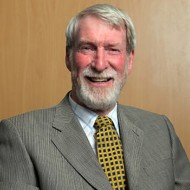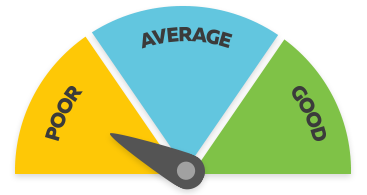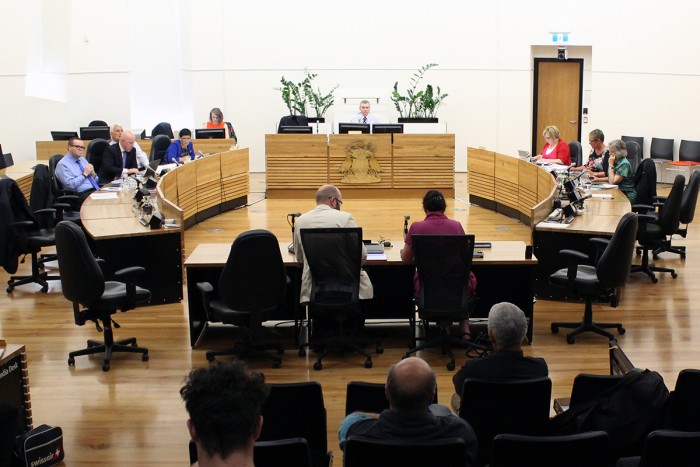Elected Government Representative
Māngai ā-Pōtitanga
Alternative titles for this job
Elected government representatives are elected by the people of a specific area to help govern a city, region or country.
Pay
Members of parliament usually earn
$160K-$300K per year
Local government representatives usually earn
$2K-$190K per year
Source: NZ Parliamentary Counsel Office, 2017 and 2018.
Job opportunities
Pay
Pay for elected government representatives varies depending on their position.
Member of parliament earnings
Pay for members of parliament depends on their level of responsibility.
- Members of parliament usually earn between $160,000 and $180,000 a year.
- Ministers can earn between $250,000 and $300,000.
- The Prime Minister's salary is set at $470,000.
Members of parliament also get a yearly allowance to cover out-of-pocket expenses associated with their work, such as entertainment, meals and memberships.
Source: New Zealand Parliamentary Counsel Office, 2017.
Local government representative earnings
Pay for local government representatives depends on their responsibilities, hours and the size of their council.
- Community board members usually earn between $2,000 and $47,000 a year.
- Local and regional councillors usually earn between $13,000 and $108,000, but are paid more for extra responsibilities.
- Most mayors and regional council chairs can earn between $52,000 and $190,000. The mayor of Auckland is New Zealand's highest paid mayor and earns about $270,000 a year.
Source: New Zealand Parliamentary Counsel Office, 2018.
(This information is a guide only. Find out more about the sources of our pay information)
What you will do
Elected government representatives may do some or all of the following:
- act on behalf of individuals or groups
- study reports, proposals, complaints and petitions
- present, debate and vote on new laws and policies
- attend meetings and public events, make speeches and give interviews
- work with officials to develop policy.
Some elected government representatives also hold extra positions, such as junior or senior whip (who manage a political party's members of parliament).
Skills and knowledge
Elected government representatives need to have knowledge of:
- political, economic, social and cultural aspects of New Zealand
- the region they are representing
- official parliamentary procedures.
Knowledge of tikanga Māori (culture and customs) is also useful.
Working conditions
Elected government representatives:
- usually work full time, though some, particularly community board members, work part time and do other jobs
- work in offices, council chambers, at parliament and in the communities they represent
- may travel around the country and internationally to attend parliament, conferences, seminars and meetings.
What's the job really like?

Jonathan Hooker
Councillor
Why did you decide to get into local government?
“I have always been passionate about making a difference in my local community (Masterton). I was already heavily involved in the community when approached by two of the “Town Fathers” and asked to stand for Council in 2001.”
What do you enjoy most about being a councillor?
“The opportunity to make a positive difference in my community. You are also privileged to information about clever things people are doing and successes that may not be in the public domain.”
What do you find most challenging about being a councillor?
“Being able to commit quality time to the role – as it’s not full time – and trying to make a living as well. Also, the ill-informed personal criticism at times. Having to make the hard calls you know will cause rates rises, and being able to look into the future and lay foundations for what may well be quite a different community than we live in now.”
What advice would you give to someone interested in getting into local government?
“Get involved in serving in your local community first and then get involved in governance, for example, join a local committee before then standing for council. Getting formal governance training would also be beneficial but it’s not critical. It’s also important you have a good understanding of finances.”
Entry requirements
To become an elected government representative, you need to be:
- at least 18 years old
- a New Zealand citizen
- enrolled on the parliamentary electoral roll
- elected by your electorate, or be elected from a party list.
Members of parliament representing a political party are chosen by the party for an electorate or a list seat.
Secondary education
There are no specific secondary education requirements to become an elected government representative. However, te reo Māori, English, economics, and social studies are useful.
Personal requirements
Elected government representatives need to be:
- trustworthy
- motivated
- confident
- excellent communicators and debaters
- skilled in making decisions
- good at planning and organising
- able to evaluate and interpret information
- able to inspire confidence and trust in others.
Useful experience
Useful experience for elected government representatives includes:
- work as a local government representative
- work as a union official or delegate
- work for a political party or pressure group
- debating experience.
Any work in economics, law, education or another specialist field, such as health or social work, is also useful.
Find out more about training
- Local Government New Zealand
- (04) 924 1200 - www.lgnz.co.nz
- New Zealand Parliament
- (04) 817 9999 - www.parliament.nz
What are the chances of getting a job?
More opportunities for elected government representatives in local government
Chances of becoming a local government representative are better than for members of parliament. However, chances are poor for both representative roles as opportunities usually only happen during elections that are held every three years.
Local government representatives are elected to city, district and regional councils, district health boards and licensing trusts.
According to the Census, 1,065 elected government representatives worked in New Zealand in 2018.
High competition for member of parliament positions
There is intense competition for the 120 seats in parliament. At the 2017 general election, 32 new members of parliament (MPs) were elected.
Small range of employers
Members of parliament are employed by the country's voters. Their salaries and terms of employment are set by parliamentary services.
Local government representatives are employed by one of New Zealand's 78 local councils, regional councils, or unitary authorities (a council that performs the functions of a local and regional council).
Sources
- Electoral Commission website, accessed July 2018, (www.elections.org.nz).
- Heron, M, 'New MPs: It's Been a Big Road to Here', Radio New Zealand website, September 2017, (www.radionz.co.nz).
- Local councils website, accessed July 2018, (www.localcouncils.govt.nz).
- Local Government website, accessed July 2018, (www.lgnz.co.nz).
- New Zealand Parliament website, accessed July 2018, (www.parliament.nz).
- Stats NZ, '2018 Census Data', 2019.
(This information is a guide only. Find out more about the sources of our job opportunities information)
Progression and specialisations
Elected government representatives may progress to become senior representatives of their council or political party.
Elected government representatives may specialise as a:
- Member of Parliament
- Members of parliament (MPs) represent the electorate in the House of Representatives (parliament). There are 70 electorate MPs, chosen by voters in the area, and 50 list MPs.
- Local Government Representative
- Local government representatives form a council, which includes a mayor or chairperson, or a community board. There are also local body board members, who represent the electorate on boards such as district health boards.
Last updated 21 December 2023

